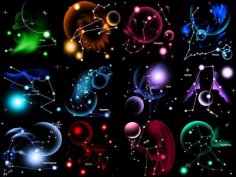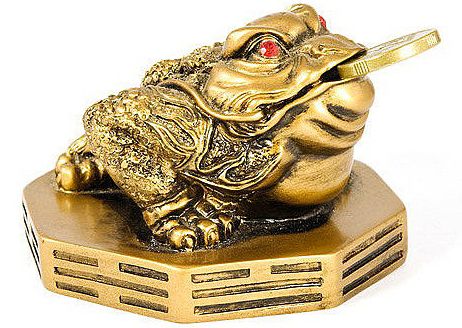
Horoscopes can be found in every glossy magazine, periodical, and even advertising brochure. Nowadays, it's easy to find a forecast for the day, week, or even month—just open a newspaper or go online. Many people start their day with an astrological forecast. But should such predictions be trusted? Almost everyone has asked this question. There's no definitive answer, as there is to much else related to space and astrology. Each person decides for themselves how to approach them. But it's important to remember that our decisions often depend on our own knowledge.
Millions of people around the world believe that the alignment of the stars influences the course of their day, and even their entire lives. People look at their daily horoscopes before starting activities and study each other's horoscopes before entering into relationships. With the help of an astrologer, people decide many important matters, such as what day to schedule business negotiations, what day to choose for a wedding, and so on.
Almost everyone, regardless of psychological and moral beliefs, financial situation, gender, and age, believes in various astrological predictions. Unfortunately, it often happens that horoscopes practically determine people's destinies. Indeed, even someone who is openly skeptical of various astrological predictions often subconsciously attunes themselves to the events described by them when reading them. Of course, it's good if such predictions promise profit, a successful deal, or career advancement. In such cases, people are attuned to success and achieve positive results. However, sometimes horoscopes also predict impending illnesses, quarrels, and problems. In such cases, people are attuned to negativity and, thus, attract various problems and difficulties.
People have been fascinated by horoscopes since ancient times. Ancient rulers would always consult astrologers before issuing government decrees. Horoscopes remain very popular to this day. People haven't lost interest in them. Some believe in horoscopes, some read them as a joke, some heed their advice, and for others, they're complete nonsense. Everyone is different, and so everyone's attitude toward horoscopes varies.
Horoscopes often come true, but this is most likely because the forecasts are vague and general. Almost any situation can be considered such a forecast. However, if you think about it, some forecasts contain predictions that may not apply to all members of a particular sign. For example, some forecasts claim that a particular zodiac sign will meet their soulmate this week—but this may not apply to all members of that sign, as some may no longer be single. The very fact that horoscopes are based on the alignment of the stars raises doubts.
If we accept that a person's destiny is predetermined from above, then a horoscope is far from empty words. It should explain how to live your day correctly and suggest how to avoid mistakes. By reading a horoscope, a person believes they have protected themselves from troubles and surprises. They will know how to behave in any given situation. But if a person wants to feel unique and inimitable, then it's hardly worth trusting horoscopes and believing the lines that are intended for millions of people besides themselves. Yet many continue to believe in them nonetheless. Everyone wants to glimpse their future, even if only briefly. To find out whether they will find love, whether their fears will come true, and whether their problems will be resolved. Some are even willing to pay money for their curiosity.
During times of cataclysm, interest in horoscopes intensifies. In these situations, a horoscope acts as a psychotherapist—it sets one up for the best and provides reassurance, as many people are highly superstitious. Insecure and depressed people are especially likely to turn to horoscopes. So should you believe horoscopes or not?
It's impossible to ignore the fact that a person's psychological characteristics and their date of birth are connected. The time of conception and the influence of solar activity on the embryo can influence its character and, consequently, its destiny. Therefore, horoscopes are trustworthy; there is a grain of truth in their predictions. The question is how to treat this truth and, most importantly, how to distinguish truth from mere fiction. Horoscopes generally boost self-esteem; they almost never describe the negative traits of representatives of a particular zodiac sign. If any are present, they are described in a veiled manner so as not to traumatize the person's psyche.
Among all astrological forecasts, compatibility horoscopes hold a special place. These horoscopes also have a complex impact on a person's destiny. After all, if a person reads the predictions in different places, they will discover different versions – in one version, a union with a certain zodiac sign may be contraindicated, while in another, such a union will be considered ideal. Any normal person, having read such nonsense, will begin to doubt the accuracy of the stellar predictions. And in this situation, they would be right. After all, astrological science has long proven that in nature, there can be no completely incompatible or compatible people. Every relationship, every couple, has its own complexities and problems. And any professional astrologer will consider a couple's compatibility on several levels – energetic, psychological, conflictual, everyday, and many others. Astrologers evaluate a couple's compatibility precisely by these basic criteria, and each couple has its own degree of compatibility. But even a professional forecast can only be accurate if people let their relationships take their own course. If they're unwilling to work on their relationship and themselves, their worst fears will come true. Any relationship requires long and hard work, learning to cope with various family crises with dignity. Only then can you bring your couple closer to the title of “perfect.”
The idea that much of a person's destiny is predetermined by their date of birth is a source of concern for many, and it finds some support. Astrophysicists, astronomers, and scientists are convinced that astrology is unscientific, as there are no constellations in the scientific sense, as stars, due to their varying distances from one another, cannot form clusters. Moreover, many visible bodies have long since faded, and only their light remains visible. Skeptical scientists believe that no scientific research confirms that the stars influence the destinies of such distant and insignificant objects as people. However, it's impossible to definitively declare that horoscopes should not be trusted.
Astrologers have been debating for years about what is more significant: the moment of a person's birth or the time of conception. Scientists consider these debates pointless. They believe it's not the specific day that matters, but the time of year in which a person is born. And whether a month earlier or later makes little difference.
James Randi, a well-known figure in the United States, conducted a rather curious experiment. He recruited students to participate. Participants were given sheets of paper containing horoscopes, which, according to Randi, were produced using a new scientific method. Randi claimed that these horoscopes took into account each student's individual characteristics. As a result, more than half of the students confirmed that the horoscope accurately and reliably depicted their character and habits. However, many of them had previously stated that they did not trust astrologers and horoscopes. Randi then asked the participants to swap sheets of paper, and it turned out that all the sheets contained the same text. This experiment demonstrates that horoscopes can only be trusted with a grain of salt, especially if the person is suggestible.
Each person must decide for themselves whether to believe in horoscopes or not. One way or another, they have existed for centuries. This means there is something to them, and they attract our interest and attention.





